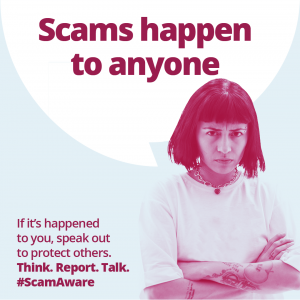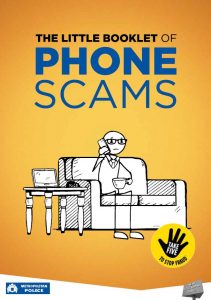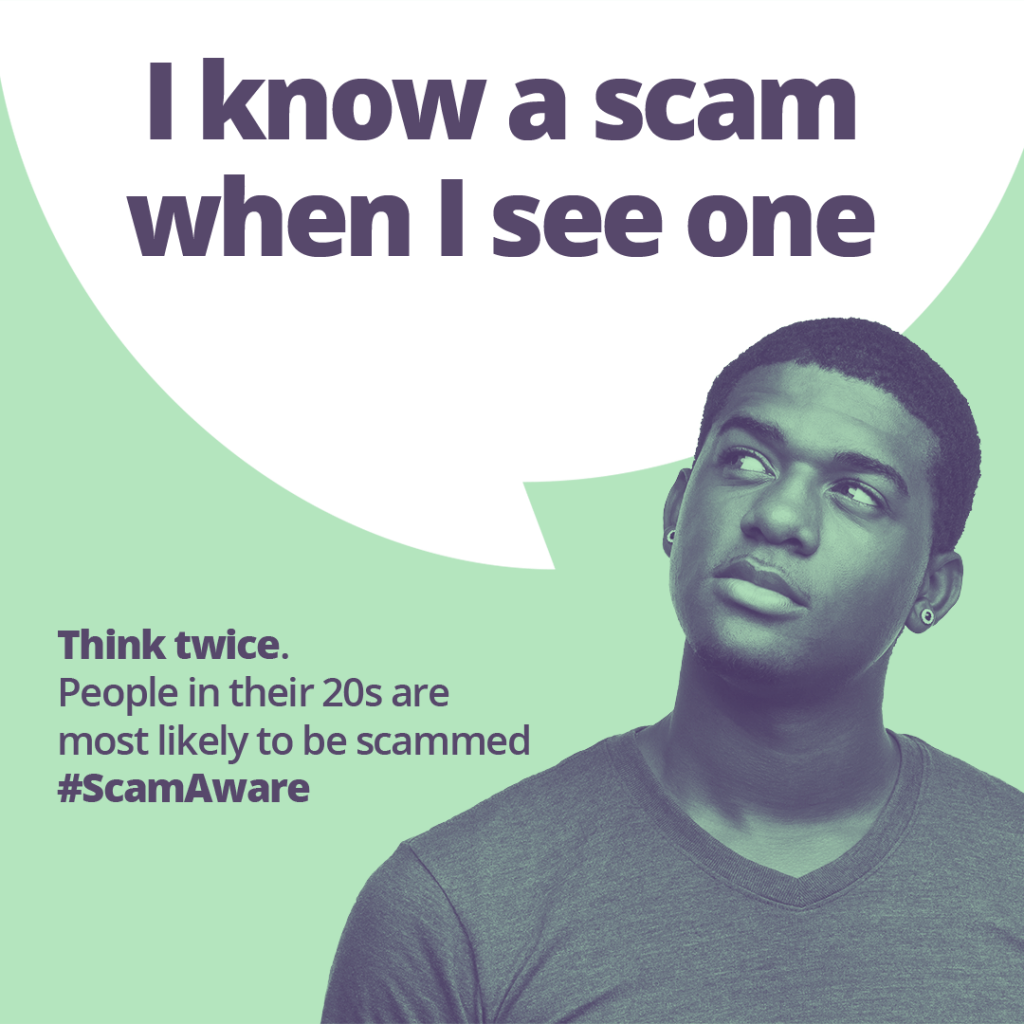Be Scams Aware
Are you keeping a look out for Scams?
If you are suspicious you are being targeted or think you have been scammed call us on our freephone 0808 278 7834 (Monday to Friday, 10am to 4pm).
Here are our top tips to help you recognise a scam so that you don’t become a victim.
If it’s too good to be true it probably is.
That’s the case for ‘bargain’ offers such as on holidays, insurance, pensions, investments, face masks, coronavirus test kits or other PPE.
Beware unknown callers and emails. Just hang up if you don’t know the caller. And don’t click on links of any unknown or suspicious email senders.
No real bank, HMRC, government department, council or any other public authority will call and ask for your personal or financial account details.
Never give anyone your date of birth or National Insurance Number – these are the keys to your identity.
Never give out your bank, debit or credit card details including PIN numbers, passwords or account number.
Never transfer money to an unknown account, especially if you’re asked to do this quickly.
Never give out your computer or internet logins or passwords for any online account.
If you’re contacted by the NHS Test and Trace service, you will not be asked to provide any passwords, bank account details or pin numbers. Find out more about how NHS test and trace works: www.gov.uk/guidance/nhs-test-and-trace-how-it-works
Get help with online scams
- Check if something might be a scam
- Check if you can get your money back after a scam
- What to do if you’ve been scammed
- Report a scam
- Get emotional support if you’ve been scammed
How to avoid or report a suspicious email
www.gov.uk/report-suspicious-emails-websites-phishing
How to recognise a financial scam
www.google.co.uk/amp/s/www.moneyadviceservice.org.uk/blog/how-to-report-scam-fraud/amp
If you think you have been scammed
Report it to Trading Standards: www.westminster.gov.uk/scams-during-coronavirus
Call Action Fraud: www.actionfraud.police.uk

Be Scam Aware and pass on the advice to your friends and family to help them stay safe.

Download a copy of the Phone Scams Booklet here.
Helping clients avoid TV Licensing scams
Since the start of the pandemic we’ve seen the number and variety of scams increase. Research by the Government’s Joint Fraud Taskforce found that 8 out of 10 UK adults had received a scam text in the last three months and landline call scams continued to be a threat for older people, with almost two thirds of all over-75s saying they had received a potential scam call.
That’s why TV Licensing is working to help customers protect themselves against fraudsters. To help stop the scammers , we are asking people to STOP – CHECK – ASK if they receive any suspicious communications that appear to be from TV Licensing.
- STOP – Scammers will attempt to trick you into giving away your personal or bank details. Always be wary of letters, emails, texts or phone calls that promise you money or a refund.
- CHECK – Has the sender spelled your name correctly and are there any grammatical mistakes? You should also make sure they have included the correct licence number, which you can check on the TV Licensing website.
- ASK – If you’re ever unsure about a communication you’ve received, it’s always best to ask someone – perhaps a friend or trusted advisor. You can go to the TV Licensing website and sign in to your licence at www.tvl.co.uk/yourlicence to check if anything is actually wrong or call TV Licensing on 0300 303 9695 to speak with someone who can help.
You can find more information about how to avoid scams and how to report one here.



